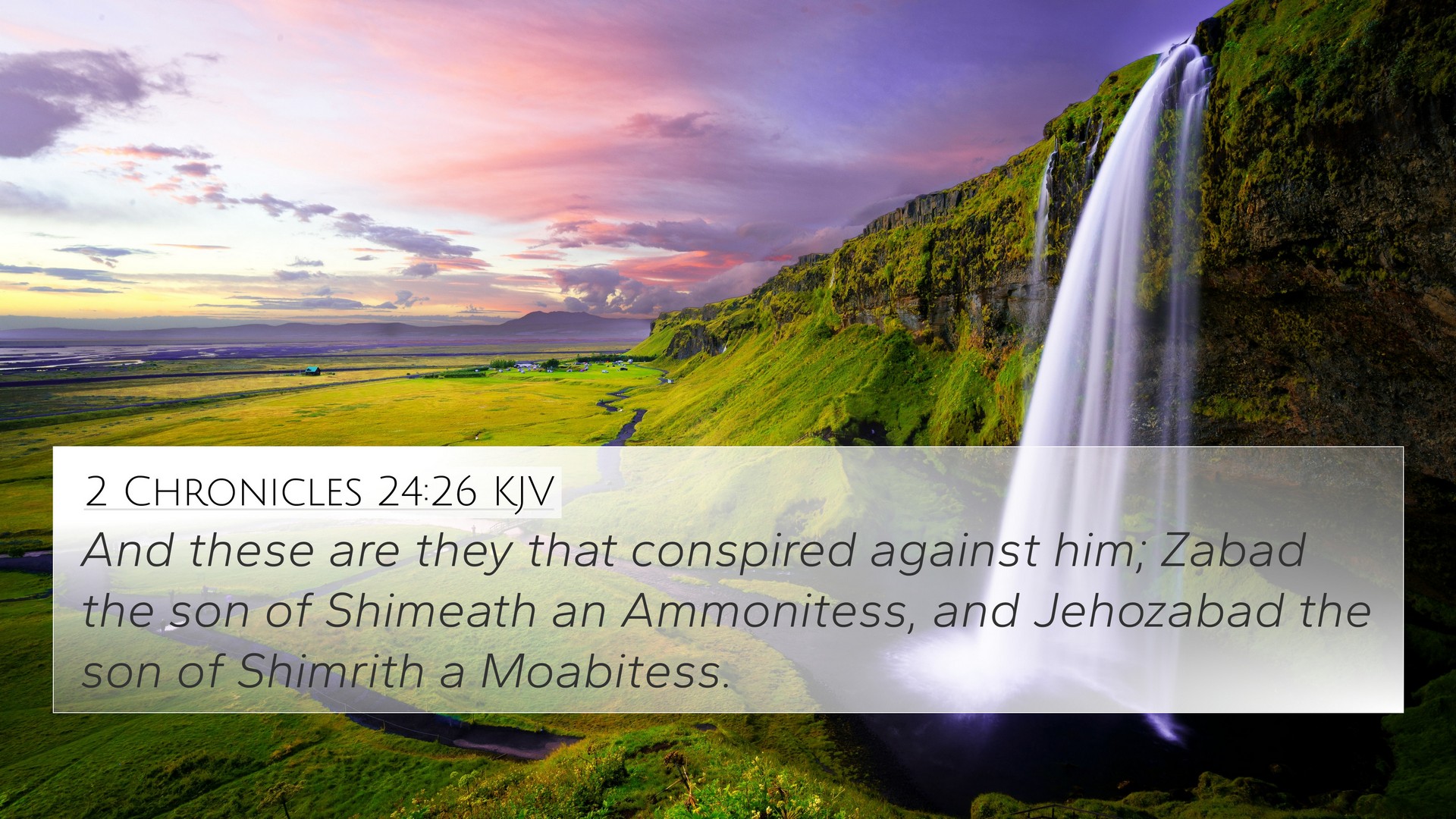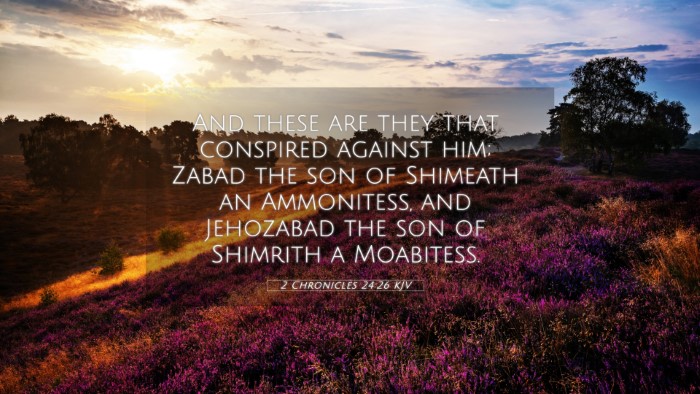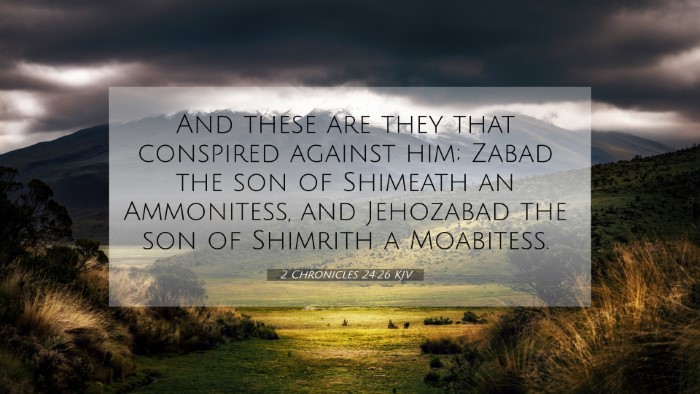Understanding 2 Chronicles 24:26
The verse 2 Chronicles 24:26 states: "And these are they that conspired against him; Zabad the son of Shimeath, and Jehozabad the son of Shomer, his servants, smote him, and he died; and they buried him with his fathers in the city of David. And Amaziah his son reigned in his stead."
This verse captures a pivotal moment in the life of King Joash, detailing the conspiracy that led to his death. Drawing from public domain commentaries, we can explore the meaning and implications of this verse for better understanding.
Insights from Commentaries
-
Matthew Henry's Commentary:
Henry elaborates that the conspirators against Joash were motivated by his idolatry and departure from God’s laws. Joash, who started his reign well, ultimately strayed from serving the Lord, leading to his tragic end. Henry emphasizes the theme of consequence; those who betray their divine calling will face dire retribution, and the earthly recognition one may hold becomes meaningless when aligned against God's will.
-
Albert Barnes' Notes:
Barnes notes that the political intrigue and betrayal illustrate the dangers of abandoning fidelity to God. Joash had initially followed God's will but allowed evil influences to guide him later in life. This juxtaposition serves as a moral lesson about integrity and the vulnerability that comes from turning away from one’s faith.
-
Adam Clarke's Commentary:
Clarke comments on the consequences of neglecting divine counsel. The death of Joash marks a significant warning to rulers; Clarke posits that the spiritual state of the nation and its leaders directly correlates to their fidelity to God. The handing over of power to Amaziah signals a continuation of leadership that needs to be vigilant against similar pitfalls.
Thematic Connections
2 Chronicles 24:26 serves as part of the larger narrative of kingship in Israel and Judah, where the moral and spiritual integrity of leaders directly impacts their reign and ultimately their demise. This verse highlights several themes:
- Consequences of Idolatry
- Betrayal and Political Intrigue
- The Importance of Spiritual Leadership
- Divine Justice and Retribution
Cross-References
Here are some related Bible verses that further illuminate the themes present in 2 Chronicles 24:26:
- 2 Kings 12:1-3: Discusses Joash's initial reforms and later failures.
- 2 Chronicles 23:11: Illustrates Joash’s coronation and the influence of high priest Jehoiada.
- Proverbs 14:34: "Righteousness exalts a nation, but sin is a reproach to any people." Highlights the moral fiber necessary in leadership.
- Matthew 26:56: Relates to betrayal, similar to the conspirators against Joash.
- 1 Samuel 15:23: Discusses the rebellion against God likened to the sin of witchcraft—a cautionary note to leaders.
- Psalm 94:20: Questions the alignment of corrupt rulers with divine justice.
- Ezekiel 18:30: Calls for turning from sin, which serves as a moral imperative for leaders.
Applying the Insights
Understanding the implications of 2 Chronicles 24:26 leads to reflections on leadership, accountability, and the necessity of guiding all actions by divine principles. This verse serves as a sobering reminder for both individuals in leadership and the followers who support them:
- Evaluate the influences in your leadership or governance.
- Consider the long-term consequences of decisions made in the name of power.
- Ensure your actions align with spiritual and moral values to foster a just and faithful community.
Conclusion
To truly understand 2 Chronicles 24:26, we must appreciate the broader biblical context and the cross-references that provide depth and clarity. Engaging in cross-referencing Bible study techniques will enhance one's personal study and enable a more profound grasp of the inter-Biblical dialogues present in these scriptural texts. This analysis brings forth not only a historical account but also rich theological implications relevant to contemporary discussions on leadership, integrity, and divine accountability.



